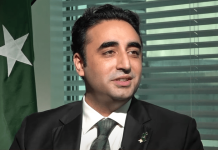By Ali Imran
ISLAMABAD: The Senate on Friday passed the Societies Registration (Amendment) Bill, 2025.
The bill stipulates that Deeni Madaris already registered under the Societies Registration Act, 1860, or those opting for direct registration with the Directorate General of Religious Education, will be deemed duly registered.
Minister for Law and Justice Azam Nazeer Tarar, while presenting the bill, informed the Senate that two parallel streams exist for seminary registration: one includes religious seminaries affiliated with the federal government, functioning under a structured system and registered through formal procedures. According to Statement of Objects and Reasons, Deeni Madaris have been registered under the Societies Registration Act, 1860. However it is proposed that those Madaris and Wafaqs already registered or desirous to get registered directly with Directorate General of Religious Education, Ministry of Federal Education and Professional training shall be reckoned to have been registered.
Tarar said the second stream emerged after the Army Public School (APS) attack, when the National Action Plan called for reforms to introduce contemporary subjects and government-prepared syllabi in madrassahs to align religious education with modern academic needs.
He said religious boards, including Wafaq-ul-Madaris, agreed to the reforms, and a policy shift later made madrassah registration mandatory, resulting in thousands being registered. Institutions opting to remain under their internal boards could still register under the traditional Societies Registration Act, but must meet standard requirements like clearance from the deputy commissioner and district security committee.
He said, “In the case of Islamabad Capital Territory (ICT), it has been ensured that registration takes place under the Societies Registration Act through the Directorate of Religious Education.”
He added that although the earlier registration process was discontinued temporarily, both streams now remain functional in many areas. “There may be slight differences in the forms, but the main objective is the same: ensuring students at seminaries receive a verified syllabus that includes modern subjects and access to qualified teachers.”






